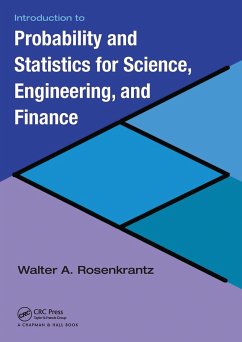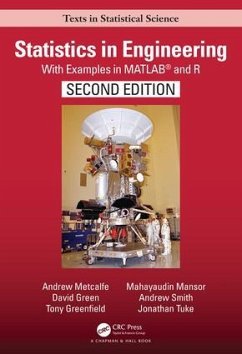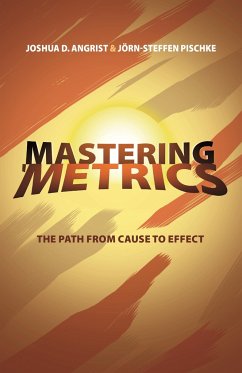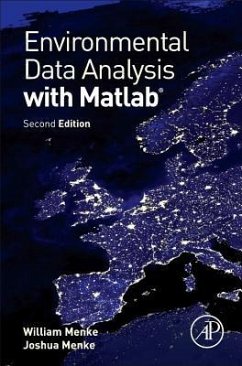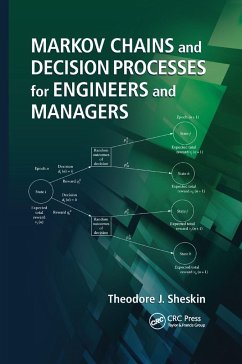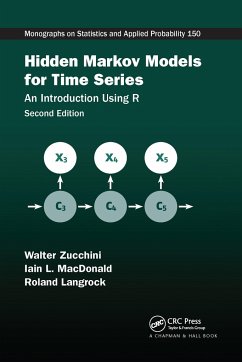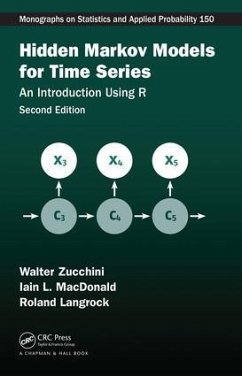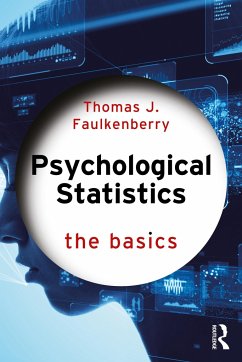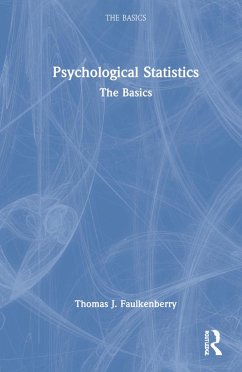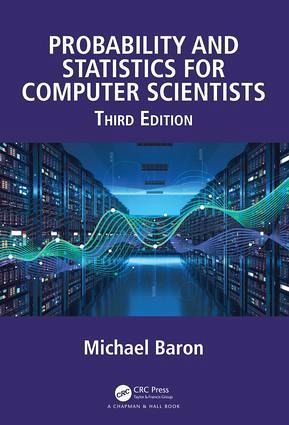
Probability and Statistics for Computer Scientists
Versandkostenfrei!
Sofort lieferbar
134,99 €
inkl. MwSt.
Weitere Ausgaben:

PAYBACK Punkte
67 °P sammeln!
Praise for the Second Edition:"The author has done his homework on the statistical tools needed for the particular challenges computer scientists encounter... [He] has taken great care to select examples that are interesting and practical for computer scientists. ... The content is illustrated with numerous figures, and concludes with appendices and an index. The book is erudite and ... could work well as a required text for an advanced undergraduate or graduate course." ---Computing ReviewsProbability and Statistics for Computer Scientists, Third Edition helps students understand fundamental ...
Praise for the Second Edition:
"The author has done his homework on the statistical tools needed for the particular challenges computer scientists encounter... [He] has taken great care to select examples that are interesting and practical for computer scientists. ... The content is illustrated with numerous figures, and concludes with appendices and an index. The book is erudite and ... could work well as a required text for an advanced undergraduate or graduate course." ---Computing Reviews
Probability and Statistics for Computer Scientists, Third Edition helps students understand fundamental concepts of Probability and Statistics, general methods of stochastic modeling, simulation, queuing, and statistical data analysis; make optimal decisions under uncertainty; model and evaluate computer systems; and prepare for advanced probability-based courses. Written in a lively style with simple language and now including R as well as MATLAB, this classroom-tested book can be used for one- or two-semester courses.
Features:
Axiomatic introduction of probability
Expanded coverage of statistical inference and data analysis, including estimation and testing, Bayesian approach, multivariate regression, chi-square tests for independence and goodness of fit, nonparametric statistics, and bootstrap
Numerous motivating examples and exercises including computer projects
Fully annotated R codes in parallel to MATLAB
Applications in computer science, software engineering, telecommunications, and related areas
In-Depth yet Accessible Treatment of Computer Science-Related Topics
Starting with the fundamentals of probability, the text takes students through topics heavily featured in modern computer science, computer engineering, software engineering, and associated fields, such as computer simulations, Monte Carlo methods, stochastic processes, Markov chains, queuing theory, statistical inference, and regression. It also meets the requirements of the Accreditation Board for Engineering and Technology (ABET).
About the Author
Michael Baron is David Carroll Professor of Mathematics and Statistics at American University in Washington D. C. He conducts research in sequential analysis and optimal stopping, change-point detection, Bayesian inference, and applications of statistics in epidemiology, clinical trials, semiconductor manufacturing, and other fields. M. Baron is a Fellow of the American Statistical Association and a recipient of the Abraham Wald Prize for the best paper in Sequential Analysis and the Regents Outstanding Teaching Award. M. Baron holds a Ph.D. in statistics from the University of Maryland. In his turn, he supervised twelve doctoral students, mostly employed on academic and research positions.
"The author has done his homework on the statistical tools needed for the particular challenges computer scientists encounter... [He] has taken great care to select examples that are interesting and practical for computer scientists. ... The content is illustrated with numerous figures, and concludes with appendices and an index. The book is erudite and ... could work well as a required text for an advanced undergraduate or graduate course." ---Computing Reviews
Probability and Statistics for Computer Scientists, Third Edition helps students understand fundamental concepts of Probability and Statistics, general methods of stochastic modeling, simulation, queuing, and statistical data analysis; make optimal decisions under uncertainty; model and evaluate computer systems; and prepare for advanced probability-based courses. Written in a lively style with simple language and now including R as well as MATLAB, this classroom-tested book can be used for one- or two-semester courses.
Features:
Axiomatic introduction of probability
Expanded coverage of statistical inference and data analysis, including estimation and testing, Bayesian approach, multivariate regression, chi-square tests for independence and goodness of fit, nonparametric statistics, and bootstrap
Numerous motivating examples and exercises including computer projects
Fully annotated R codes in parallel to MATLAB
Applications in computer science, software engineering, telecommunications, and related areas
In-Depth yet Accessible Treatment of Computer Science-Related Topics
Starting with the fundamentals of probability, the text takes students through topics heavily featured in modern computer science, computer engineering, software engineering, and associated fields, such as computer simulations, Monte Carlo methods, stochastic processes, Markov chains, queuing theory, statistical inference, and regression. It also meets the requirements of the Accreditation Board for Engineering and Technology (ABET).
About the Author
Michael Baron is David Carroll Professor of Mathematics and Statistics at American University in Washington D. C. He conducts research in sequential analysis and optimal stopping, change-point detection, Bayesian inference, and applications of statistics in epidemiology, clinical trials, semiconductor manufacturing, and other fields. M. Baron is a Fellow of the American Statistical Association and a recipient of the Abraham Wald Prize for the best paper in Sequential Analysis and the Regents Outstanding Teaching Award. M. Baron holds a Ph.D. in statistics from the University of Maryland. In his turn, he supervised twelve doctoral students, mostly employed on academic and research positions.





